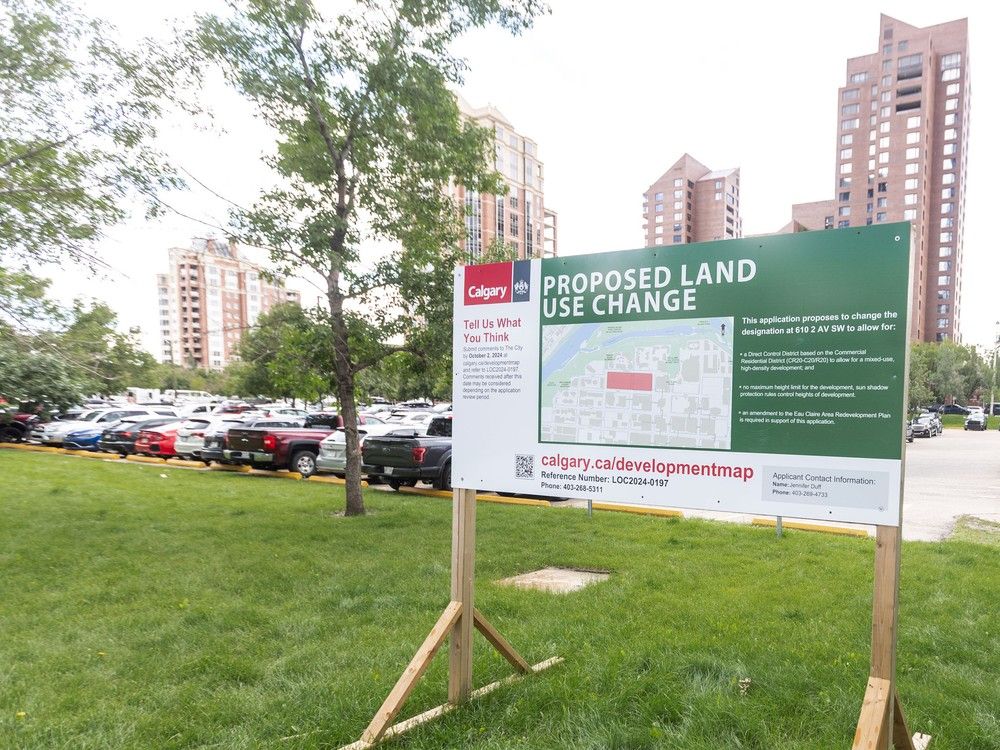The Calgary planning commission unanimously approved an area redevelopment plan amendment and a rezoning application Thursday for the project. A development permit has not been submitted. Their endorsement comes a decade after a similar “urban village” concept was considered for the site in 2014, only to be cancelled due to worsening economic conditions.
While the application does not mention suggested building heights or unit totals, the developer intends to build a “high-density, primarily residential development.” The amended Eau Claire ARP would increase the maximum amount of developable space than what is currently allowed.
